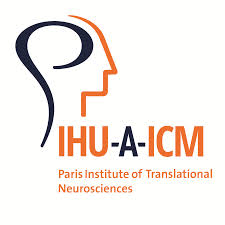







Organizer: I. Giannopulu (IHU-A-ICM Prisme-Pierre & Marie Curie University, igiannopulu@psycho-prat.fr)
Co-organizer: T. Watanabe (Okayama Prefectural University, phone: +81-866-94-2105, watanabe@cse.oka-pu.ac.jp)
Development is the result of a complex process with three foci at least, one in the central nervous system, one in the mind and one in the child's dynamic interactions with the natural vs. artificial environment, which can be robots or 2D/3D digital environments.
Requiring flexible, powerful, and synergistic dialogues in a coordinated manner, nonverbal/verbal cognition, emotion and consciousness develop at the interface between neural processes.
Toys have a central role.
Toys seem provide an interesting account of "how" physical objects (artificial or not) are able to act as support for the symbolic play of children.
They refer to how children embed information to develop knowledge representations.
Recent advances in toy robots and human brain development have set the stage to greatly expand collaboration between roboticists, engineers and neuroscientists.
This workshop on "Toy Robots/Digital Environments and Cognitive Developmental Neuroscience" proposes to foster collaborative efforts to understand human neural development by combining robotics technologies, predictive human neurodevelopmental models, immersive neuroscience experiments.
Starting from the genetic expression in brain and extending to consciousness, the first talk will give a brief primer on neuroscience and an overview of the field.
Each speaker will discuss how toy robots/digital environment can be used in interaction with children.
Rather than an abstract relationship, toy robots and 2D/3D artificial environments will be considered as to be on a continuum and can be combined.
The common goal is to understand how to develop a complex system inspired by developmental neuroscience that demonstrates some level of neurocognitive behavior that can be utilized for the
education of typical children and the neuroreeducation of atypical children (ASD, Rett's Syndrome, Cerebral Palsy including Premature, Head Injury Children).
|
This workshop is targeted at students and researchers in the general robotics and artificial intelligence communities interested in minimalist robots, toy robots and, 2D/3D artificial environments.
Interdisciplinary, it is also destined to students and researchers in cognitive developmental neuroscience.
|
| 9:00-9:20 | Introduction : Irini Giannopulu & Tomio Watanabe |
|---|---|
| 9:20-9:40 | Irini Giannopulu (UPMC-IHU-A-ICM): From Genes to Neuron, Emotion and Consciousness in Natural Environments to Artificial Environments via Toy Robots |
| 9:40–10:00 | Hannes Bleuler (EPFL): Toys and Toy Robots |
| 10:00-10:20 | Tomio Watanabe (Okayama Prefectural University): Embodied Communication System for Empathy Interface |
| 10:20-10:30 | Questions |
| 10:30-10:50 | Coffee Break |
| 10:50-11:10 | Midori Sugaya (Shibaura Institute of Technology): Digital Play Therapy for children with Learning Disabilities |
| 11:10-11:30 | Laurentiu Vasiliu & Adamantios Koumbis (Passau University): Conscientia ex Machina |
| 11:30-11:50 | Kazunori Terada (Gifu University): How Robot's Behavior Affects Intention Attribution in Children |
| 11:50-12:15 | Questions, Wrap up and conclusions |
| 12:20-14:00 | Lunch and Posters |